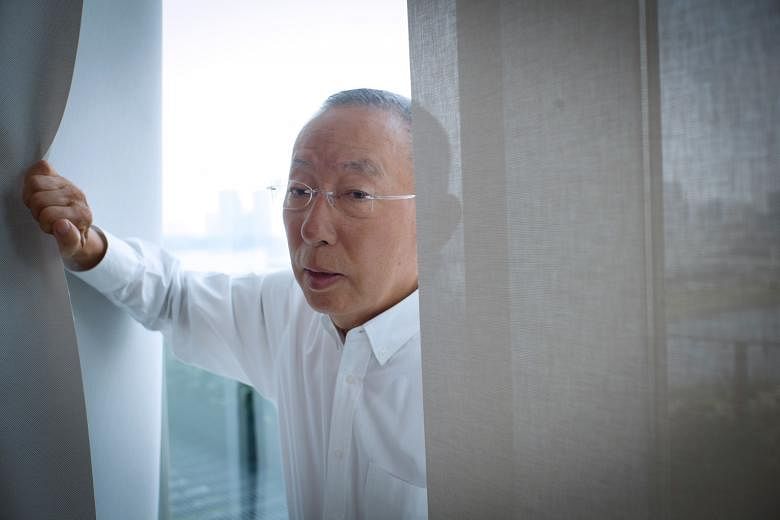TOKYO • Mr Tadashi Yanai, Fast Retailing Co's 70-year-old billionaire founder, said he would prefer to be succeeded by a woman, which would be better for Asia's largest retailer.
"The job is more suitable for a woman," Mr Yanai, chief executive of the parent firm of clothing giant Uniqlo, said in an interview. "They are persevering, detail-oriented and have an aesthetic sense."
As Mr Yanai gets older, he has been asked more frequently about succession at the company, which he built from his father's tailor shop into a global brand.
A possible candidate could be Ms Maki Akaida, who was appointed this year to run Uniqlo's Japan operations - the company's most profitable unit.
Mr Yanai said he wants to increase the ratio of female senior executives to more than half the total. Fast Retailing currently has six women in such roles, after hitting its goal last year of having more than 30 per cent of women in management positions.
Japan has faced scrutiny over its lack of gender diversity in top management roles; only 4.1 per cent of women in the country hold executive titles at publicly traded firms. That pales in comparison with places such as the United States, where women make up about a quarter of executive ranks, according to multiple studies.
"It's a possibility," Mr Yanai said when asked whether Ms Akaida would be a potential successor. The 40-year-old joined the company in 2001 and has managed Uniqlo stores in China and Japan, as well as worked in the sales and human resources divisions.
Any successor to Mr Yanai would inherit one of Japan's more recognisable global brands, after Fast Retailing fought off domestic doldrums by expanding Uniqlo overseas.
Revenue has grown consistently, surpassing two trillion yen (S$26.23 billion) last year, mainly through new stores in foreign markets from China to the US.
Prime Minister Shinzo Abe has sought to promote women in the workforce amid a labour shortage triggered by Japan's ageing and shrinking population.
With a declining birthrate, the number of people will slump by almost a third by 2060, by which time about 40 per cent will be 65 or over, according to the National Institute of Population and Social Security Research.
"We're in the business of selling clothes - it's not so good that we're old," Mr Yanai said.
Investors are looking at gender diversity in management ranks to evaluate their holdings. That is especially true for consumer companies where it may be important to have executives who are similar to and match the core customer profile, said Ms Kathlyn Collins, an analyst at Matthews Asia, a San Francisco-based fund with about US$30 billion (S$41.6 billion) under management.
"We would hope that there would be enough people overseeing management who have some sort of experience with that demographic, who maybe are familiar with the needs, wants, desires of that customer," she said.
The South-east Asian region will become an increasingly important part of Fast Retailing's business, Mr Yanai added.
The company said it would invest US$1.8 million in a partnership with the International Labour Organisation (ILO), an arm of the United Nations, to help support factory workers in Indonesia.
The ILO will also conduct a study in other countries where Fast Retailing has contract factories to explore ways to improve social protections for workers in the future.
Mr Yanai said such investments are a way to help pursue business goals and contribute to the world, as upward mobility in developing countries would likely eventually boost Fast Retailing's top line.
"If we expand in a place where incomes are not growing, we cannot sell clothes," he said.
BLOOMBERG

